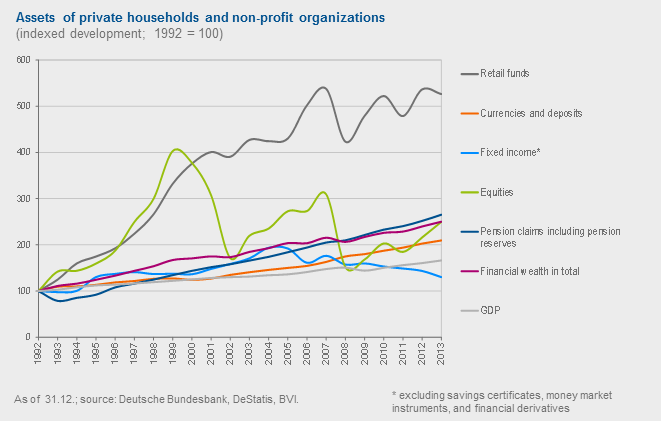Advantages of BVI mutual funds
Post on: 21 Июль, 2015 No Comment

BVI OFFSHORE MUTUAL FUNDS
Advantages of BVI mutual funds
There are two groups of reasons in favour of the registration of an offshore mutual fund in the BVI:
- general benefits of creating an investment fund in an offshore financial centre (tax haven);
- advantages of the British Virgin Islands as a suitable location for an offshore mutual fund.
The main general benefits of establishing a mutual fund in an offshore financial centre are:
Minimum or zero tax on capital gains, incomes, profits and dividends that accrue to the Fund. This would usually allow the Fund to outperform its peers domiciled in a high-tax jurisdiction, if only by the reason that the monies, which would otherwise be paid as tax, can in the case of an offshore mutual fund be further reinvested in the assets held by the Fund. While an offshore investment fund would typically operate in a tax-free environment and would therefore be able to grow faster, the individual investors should nevertheless remain aware of the fact that at the time when their investments are redeemed or when dividends are received from the offshore fund, such personal income may be subject to tax in their domicile country, at receipt. To this extent, qualified tax advice should be sought by the investor.
Minimum or zero tax on fees, commission income and profits earned by the Fund Managers, Advisors and Administrators, registered and regulated in an offshore financial centre. Again, this may provide a competitive advantage to these professionals, for instance, by giving them an opportunity to charge lesser fees and commissions than do their competitors, who happen to be located in high-tax jurisdictions.
Greater operational flexibility, in terms of both the choice and structuring of the investment portfolio, and in relation to the internal structuring of the Fund itself. This largely owes to the fact that less red tape and formal regulation is generally allowed by mutual fund legislation in offshore financial centres, as compared to creation of mutual investment vehicles in most high-tax countries. Offshore investment funds have access to the widest possible variety of investment instruments and may often pursue more aggressive investment strategies than if they were registered in a traditional jurisdiction.
The same relatively lower level of regulation allows for a faster and easier establishment process of an offshore investment fund. Subsequent running and administration costs are typically lower, too. Series of offshore investment funds, designed under the same pattern and having the same recognized managers and administrators, may be created extremely quickly and with minimum cost. As a result, an offshore investment fund can be offered to potential investors at more attractive financial terms. It is also quite common for an offshore investment fund to outsource some or all of its support functions to outside providers, either in the same jurisdiction or abroad. Thus, the fund administration, management, investment advisory and shareholder relations may be subcontracted to established service providers elsewhere. The recognition process of such outside providers for the purposes of licensing of the particular offshore investment fund is usually quite straightforward. Again, such flexibility and variety of choices quite simply ensures a more efficient and profitable running of the fund.

The particular advantages of the British Virgin Islands as a domicile for offshore mutual funds are:
BVI is a well-regulated jurisdiction with a long and proven track record. It is a widely preferred and recognized choice for offshore corporate domicile, with almost 700`000 IBCs and Business Companies registered since the introduction of the offshore financial sector in 1984.
Being a British Dependent Territory, BVI has an outstanding political and social stability, a complete legal predictability and a robust economy, featuring modern telecommunications infrastructure and a culture of professional work ethics in the financial services industry.
US dollar is the official currency in the BVI and there are no exchange controls or restrictions on financial transfers.
A BVI mutual fund is subject to zero taxation on its profits and capital gains.The same is true for any other BVI-registered business, as under the new corporate legislation there is no more legal distinction between domestic and offshore entities. This lack of ring-fencing helps to avoid potential discrimination of BVI-registered entities in their dealings abroad.
A BVI mutual fund can be registered in the widest possible variety of organizational forms — as a Business Company, a Partnership, a Unit Trust or other similar body. Recognition under the BVI Mutual Funds Act can be obtained for funds already registered in another jurisdiction, as well as for fund managers, administrators and other professionals operating from another jurisdiction. Umbrella funds and funds of funds are recognized under the BVI mutual funds legislation.
A BVI mutual fund can also be specifically registered as a Segregated Portfolio Company under the BVI Business Companies Act 2004. Registration under this chapter permits effective differentiation and management of several distinct investment portfolios or asset classes within the organizational boundaries of one mutual fund.
There are no minimum capital requirements for a BVI mutual fund, neither there are any restrictions as to the type, denomination, number, classes and designation of rights of shares that can be created. Multiple classes of shares may be issued to distinguish between different classes of assets, investors or even currencies. The authorized share capital would typically consist of common voting shares and non-voting preference shares, however different and more complicated layouts are certainly possible. Shares can be denominated in any currency, or in multiple currencies.
There are no statutory limitations as regards the investment policies, investment instruments and borrowing powers of a BVI mutual fund, as such conditions are only prescribed by internal documents (Memorandum and Articles of Association, Prospectus, Placement Memorandum, Offering Circular, etc) of the fund itself, which are determined by the promoters and managers of the fund.
In terms of actual establishment and running of an offshore investment fund, BVI provides better cost-efficiency and value for money than it`s principal competitors.
A pool of experienced, licenced professionals is readily available in the BVI for all back-office support functions of the fund. At the same time the mutual funds legislation allows outsourcing of any of such functions to foreign providers and establishes a fast and straightforward procedure for recognition of such providers.
The regulation of the offshore financial sector is carried out by the BVI Financial Services Commission under a well-designed and modern suite of laws, enabling an adequate protection of investors` interests and the support of jurisdictions? good reputation. Both the formal letter of the law and the actual regulatory practices are designed to ensure that only fit and proper persons are involved in any aspect of mutual fund operations in the BVI.
The BVI Mutual Funds Act 1996, which is the primary source of mutual funds legislation in the jurisdiction, together with sub-regulations issued by the Financial Services Commission, provides for a flexible, modern and attractive legal basis for establishment of offshore mutual funds in BVI. The review of the particular features and benefits of this legislation is provided further in this chapter.














